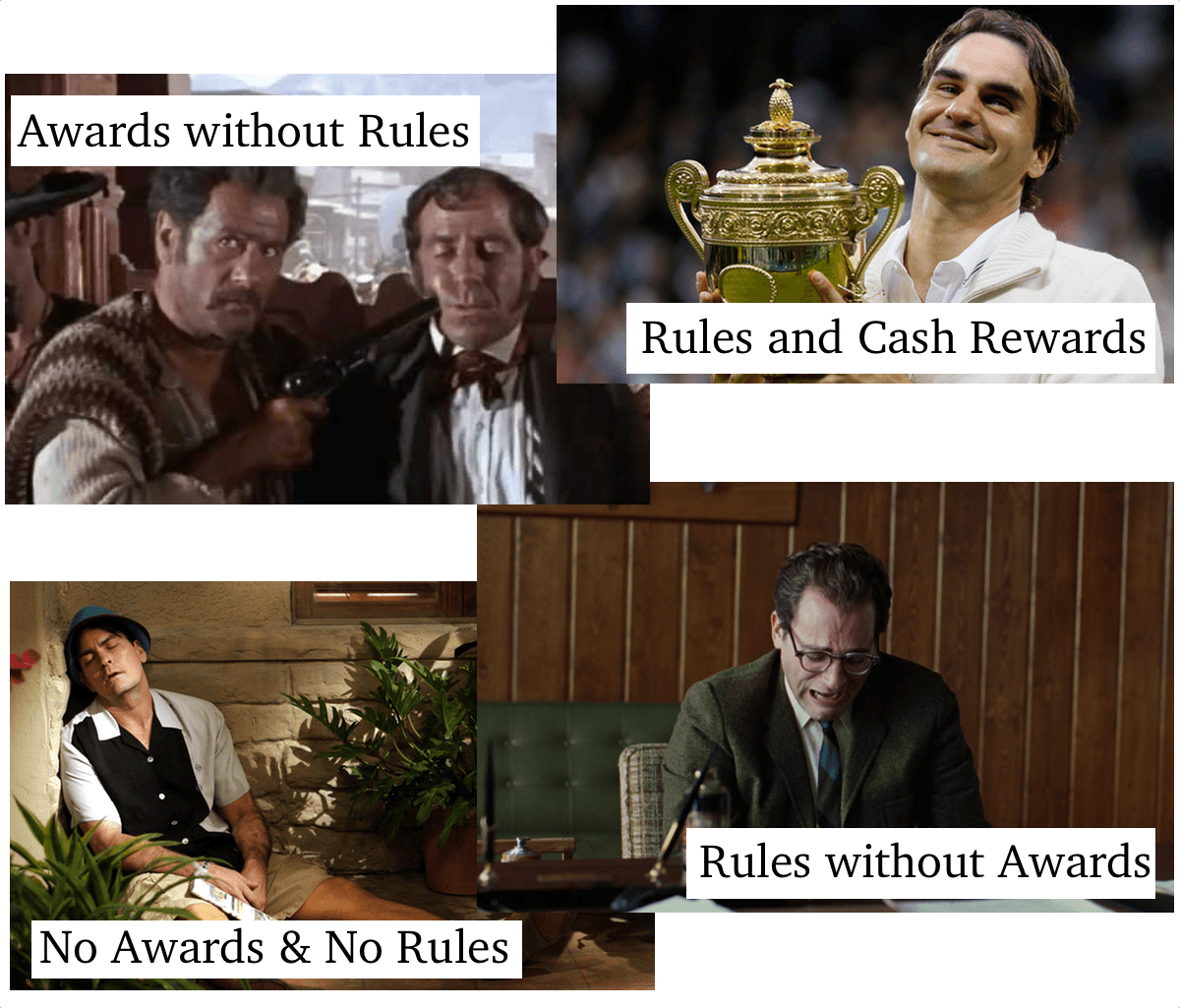Monetary rewards for employees. Do they work? Should we use them? Can money motivate creative minds? Will a programmer work better if he gets paid only when he reaches his goals and objectives?
Much research has already been done on this subject, and most of it proves that connecting results with money is a very demotivating approach. For example, Ian Larkin says that the most productive workers “suffered a 6-8% decrease in productivity after the award was instituted.”
I believe this is completely true. Money may become a terrible de-motivator for all modern employees (not just programmers).
My question is—why is this so?
Why doesn’t money work, even when it was invented to be a universal instrument to measure our labor? Why can’t an American dollar, which has been used for centuries as a trading tool between working people, be used anymore?
Why, in a modern office, do we try to hide monetary motivation and replace it with everything else, like free lunches, team building events, paid vacations, etc. Why don’t we just say—“Jeff completed his task faster than everybody else. This is his $500 check. Whoever completes the next task gets $300,” out loud in the office?… Sounds uncomfortable, doesn’t it?
Why does money as a motivator scare us?
I have an answer.
Money doesn’t work when there are no ground rules.
When we say that Jeff will get a $500 bonus if he finishes his task on time, but don’t say what he should do when someone distracts him—Jeff gets frustrated. He also doesn’t understand who his boss is anymore. Does he just work for the bonus, or should he also satisfy a CTO who comes to his desk asking him to do something else urgently? Is Jeff allowed to tell the CTO “to get lost” because he’s working towards his own personal objective (the bonus)?
In all cases I’ve seen myself and in all research cases I’ve read about, people keep repeating the same mistake. They create a rewards program (monetary or not) without setting ground rules for the team. By doing so, they encourage people to play wild-wild west, where the fastest gets the cash bag. Obviously, the Bad and the Ugly get to the prize faster, while the Good gets demotivated and depressed.

In a clockwise direction from the top left corner: The Good, the Bad and the Ugly (1966) by Sergio Leone; Roger Federer; A Serious Man (2009) by Ethan Coen and Joel Coen; Two and a Half Men (TV Series).
What do I mean by ground rules?
It should be a simple document (PMBOK calls it a Staffing Management Plan) that helps me, as a team member, answer at least these basic questions:
- How my personal results are measured?
- Who gives me tasks and who do I report to?
- How should I resolve conflicts between tasks?
- What are my personal deadlines for every task?
- Do I have measurable quality expectations for my deliverables?
- How do my mistakes affect my performance grade?
The ground rules document should be superior to your boss. If the document says that your results get an A+ grade, the boss should have no say. If she doesn’t like you personally, it doesn’t matter. You get an A+ grade, and you are the best. That’s it.
Does your team have such a document? Can you answer all of these questions? If not, you’re not ready for a rewards program. It will only make your management situation worse, just like all the scientific research says. Rewards will motivate the most cunning to take advantage of the most hard working and good-natured. Team spirit will suffer, big time.
On the other hand, if you have that “ground rules” document and you strictly follow it, giving monetary rewards to your workers will significantly increase their performance and motivation. They will know exactly what needs to be done to get the rewards, and they won’t have any distraction. Your team won’t be a group of wild west gunslingers anymore, but more like players in a sports arena. The best players will go further, and the worst will know exactly what needs to be done to improve. Fair competition will lead to a better cumulative result.
Moreover, if your ground rules are strict and explicit, you can use not only rewards, but also punishments. And your team will gladly accept them, because they will help emphasize what (and who) works best and help get rid of the waste.
I’m speaking from experience here. In XDSD we’re not only rewarding programmers with money, but we also never pay for anything except delivered results. We manage to do this mostly because our ground rules are very strict and non-ambiguous. And we never break them.
